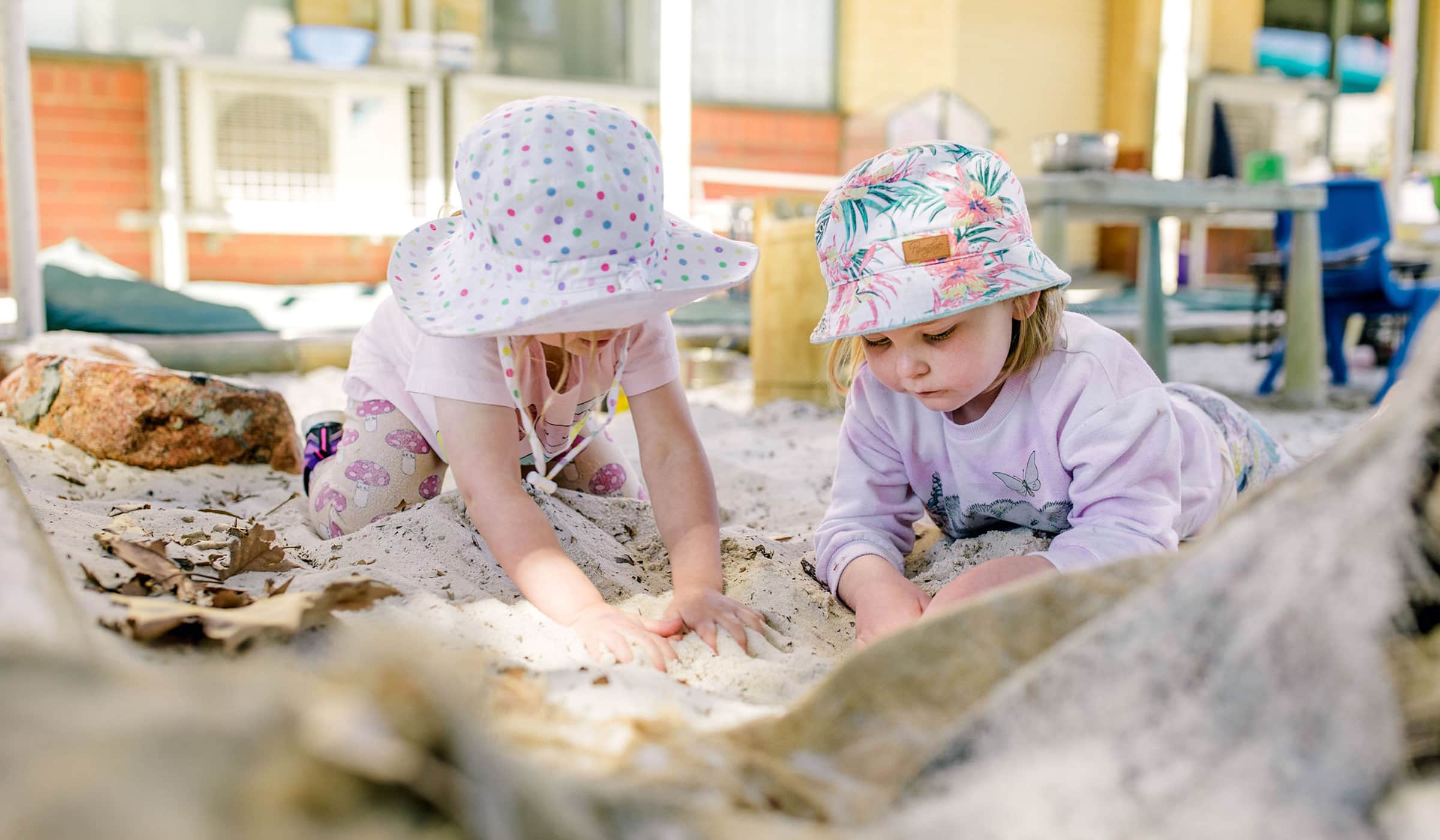
Play
Research in brain development has taught us that play shapes the structural design of the brain. Play also provides active exploration that assists in building and strengthening brain pathways. When young children play they are allowed to explore, identify, negotiate, take risks and create meaning, children who engage in these experiences are more likely to have well-developed memory skills, language development, and are able to regulate their behaviour, which leads to enhanced school adjustment and academic learning. (Barblett, L. (2010). Why play-based learning? Every Child, 16(3), 4-5.)
Educators plan the environment to include a variety of provocations and invitations, based on children’s wonderings and needs and respond in the moment to the way children engage with those opportunities. Learning in enhanced through engagement with others in play
